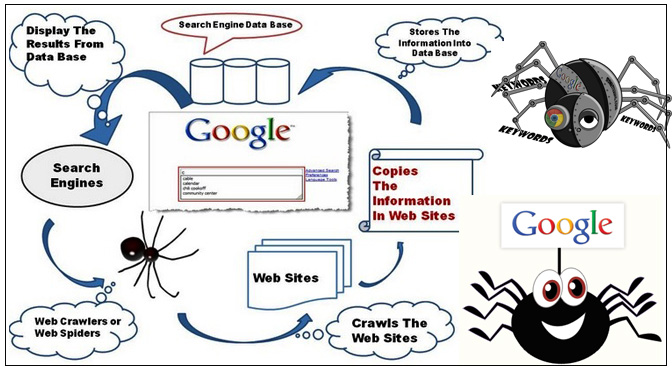Showing posts with label seo company. Show all posts
Showing posts with label seo company. Show all posts
Friday, May 1, 2020
Thursday, April 30, 2020
Key phrase stuffing
Key phrase stuffing is named an unethical SEO method that includes including an extreme quantity of key phrases into the HTML or tags of a webpage to carry extra visitors to a web site. Whereas thought of out of date and outdated, there are nonetheless web sites that try to make use of this system and find yourself being blacklisted or banned from serps.
Monday, April 20, 2020
What is Spider
The term search engine spider can be used interchangeably with the term search engine crawler. A spider is a program that a search engine uses to seek out information on the World Wide Web, as well as to index the information that it finds so that actual search results appear when a search query for a keyword is entered. The search engine spider "reads" the text on the web page or collection of web pages, and records any hyperlinks it finds. The search engine spider then follows these URLs, spiders those pages, and collects all the data by saving copies of the web pages into the index of the search engine for use by visitors. Search engine spiders are always working, sometimes to index new web pages, and sometimes to update ones that change frequently. The goal of a search engine spider is to perpetually supply the search engine it belongs to with the most up-to-date material possible.
HOW SPIDER WORK
To achieve search engine optimization effectively, web crawlers, web spiders and search engine robots play a vital role. Search engines are the most important elements for finding information on the vast ocean of the World Wide Web. Different users search information on the internet through various search engines, whichever they are comfortable with. But how do these search engines get information, from where do they find so much of information on anything under the sun is a question? Search engines are smart enough to maintain their own database of information.
How do search engines find information?
There are spiders which search engines send to the World Wide Web to find information for us. These web spiders crawl various websites and index them in search engine databases or directories for information searchers to seek information on the net.
NAME OF SPIDER
- Yahoo : Yahoo Slurp
- Google : Googlebot
- Bing : Bing Bot
How do search engines work?
The work of the search engine is divided into three stages, i.e., crawling, indexing, and retrieval.
Crawling
This is the first step in which a search engine uses web crawlers to find out the webpages on the World Wide Web. A web crawler is a program used by Google to make an index. It is designed for crawling, which is a process in which the crawler browses the web and stores the information about the webpages visited by it in the form of an index.
So, the search engines have the web crawlers or spiders to perform crawling, and the task of crawler is to visit a web page, read it, and follow the links to other web pages of the site. Each time the crawler visits a webpage, it makes a copy of the page and adds its URL to the index. After adding the URL, it regularly visits the sites like every month or two to look for updates or changes.
Indexing
After a page is discovered, Google tries to understand what the page is about. This process is called indexing. Google analyzes the content of the page, catalogs images and video files embedded on the page, and otherwise tries to understand the page. This information is stored in the Google index, a huge database stored in many, many (many!) computers.
To improve your page indexing:
Create short, meaningful page titles.
Use page headings that convey the subject of the page.
Use text rather than images to convey content. (Google can understand some image and video, but not as well as it can understand text.
Retrieval
When a user types a query, Google tries to find the most relevant answer from its index based on many factors. Google tries to determine the highest quality answers, and factor in other considerations that will provide the best user experience and most appropriate answer, by considering things such as the user's location, language, and device (desktop or phone). For example, searching for "bicycle repair shops" would show different answers to a user in Paris than it would to a user in Hong Kong. Google doesn't accept payment to rank pages higher, and ranking is done programmatically.
#SEOCOMPANYINJAIPUR #SEOCOMPANYINDELHI #SEOCOMPANYINGURGAON #SEOCOMPANYININDIA #SEOCOMPANY #SEOTRAINING
What Is SEO / Search Engine Optimization?
SEO stands for “search engine optimization.” It is the process of getting traffic from the “free,” “organic,” “editorial” or “natural” search results on search engines.
It is a process designed to optimize a website for search engines. It helps websites achieve a higher ranking in search engine results when people search for keywords related to their products and services. So, it is a practice of increasing the quantity and quality of traffic to a website through organic search engine results.
Subscribe to:
Posts (Atom)





